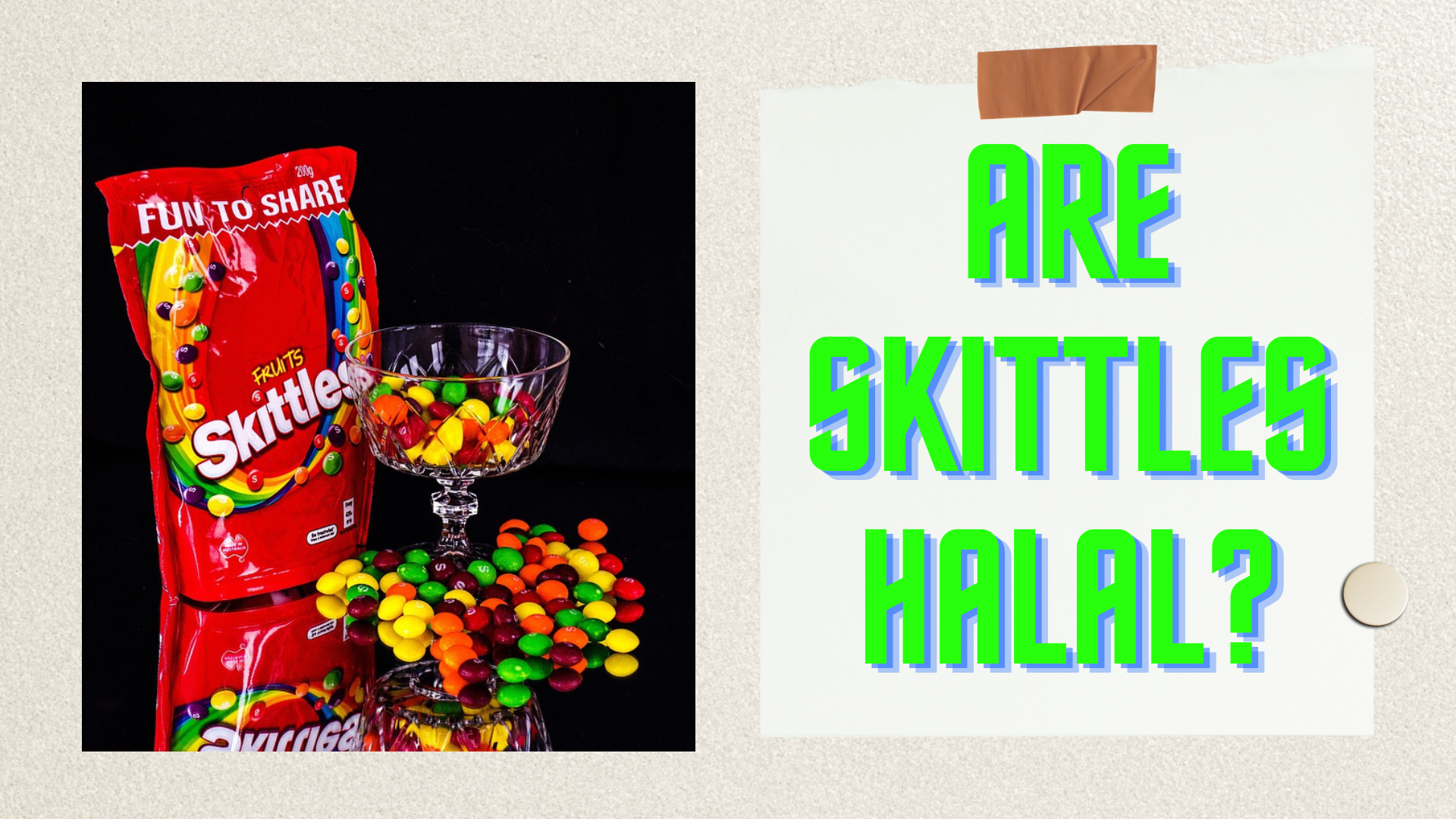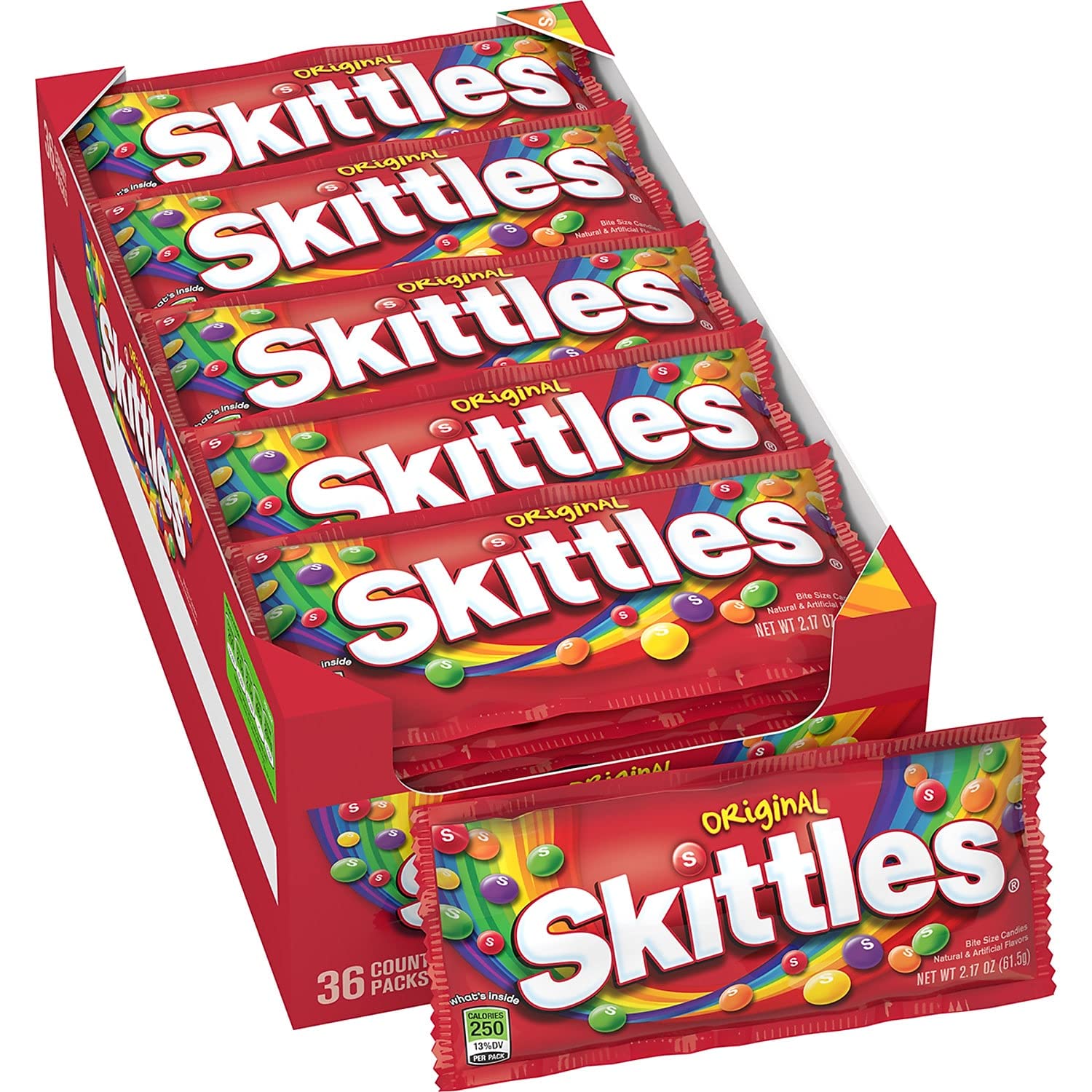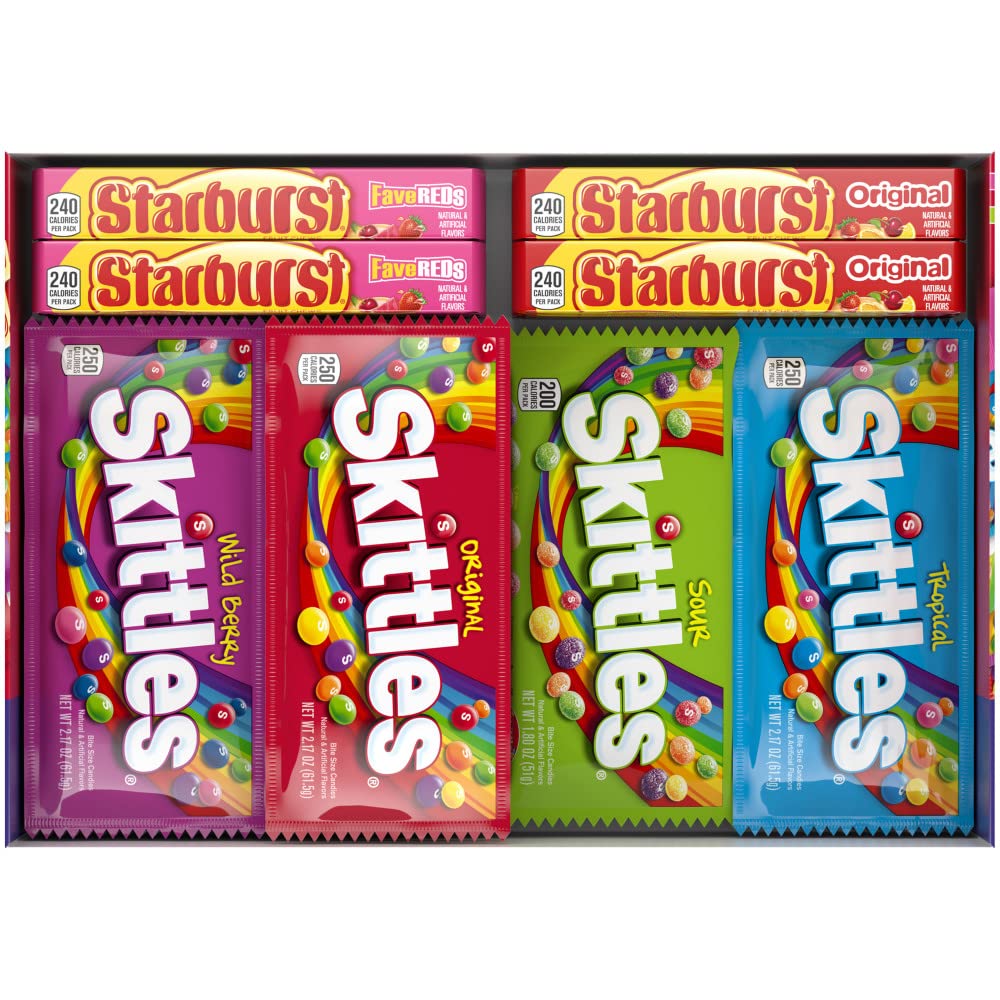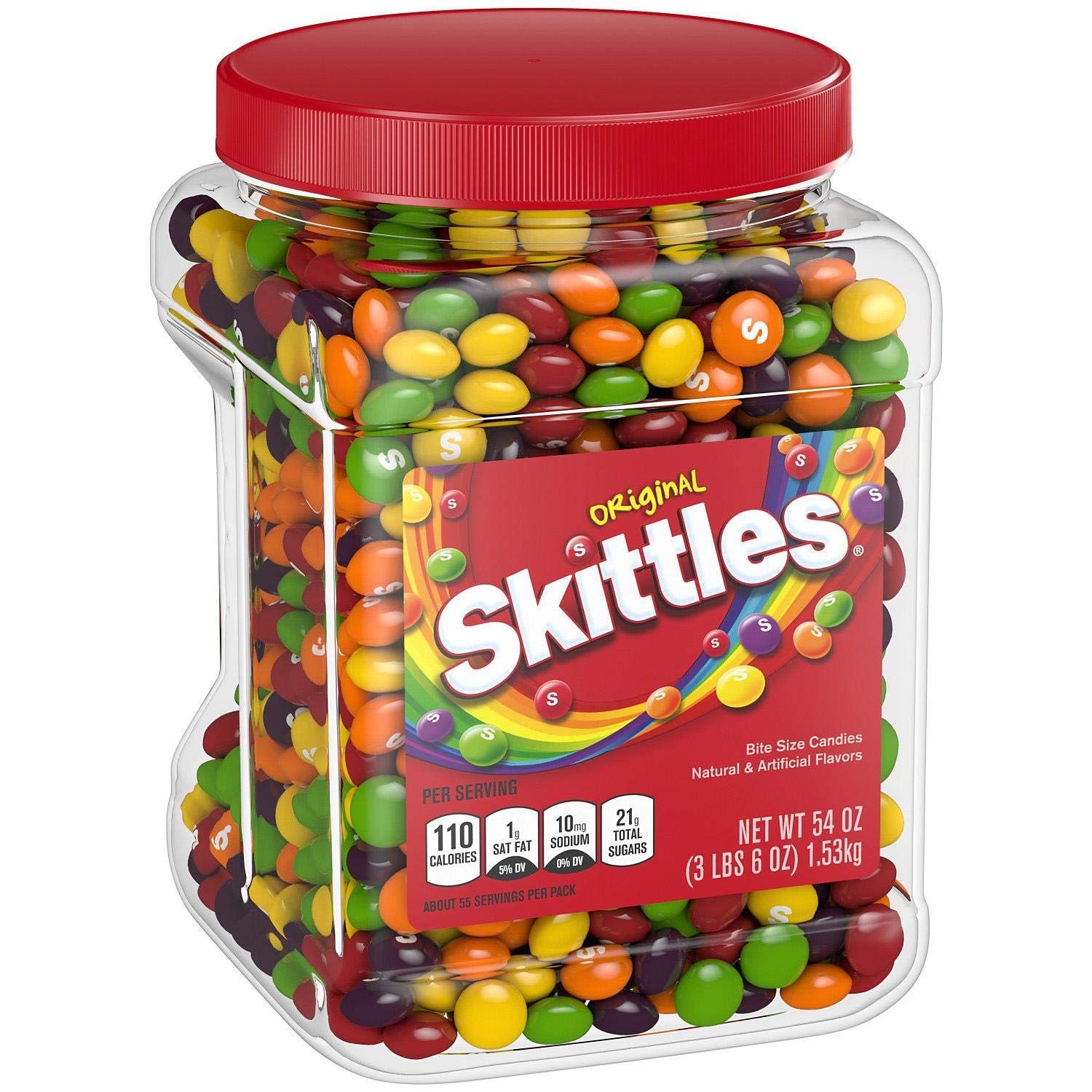Skittles are partially Halal. May or may not be halal depending on the location of the manufacturing plant, source of ingredients, and halal certifying body. The US version is not halal certified and contains non-halal ingredients like pork gelatin and animal-derived colors. However, the UK version produced by Mars Wrigley Confectionery is halal certified by the Halal Food Authority, and uses halal-compliant ingredients. It’s recommended to check local certification and ingredient labels and consult with Islamic scholars or imams before consuming Skittles or any food item.
If you’re looking to find out ‘are Skittles halal?’, you’ve come to the right place. In this blog post, we’ll be discussing what Skittles are, what ingredients are in them, and whether or not they are halal. Skittles are a type of candy that is popular all over the world. They are small, round, and come in a variety of colors and flavors. The most popular flavors are lemon, lime, orange, and grape. They are considered the perfect snack for movie-nights, picnics, and sharing with your friends. So can Muslims consume Skittles?
What are Skittles?
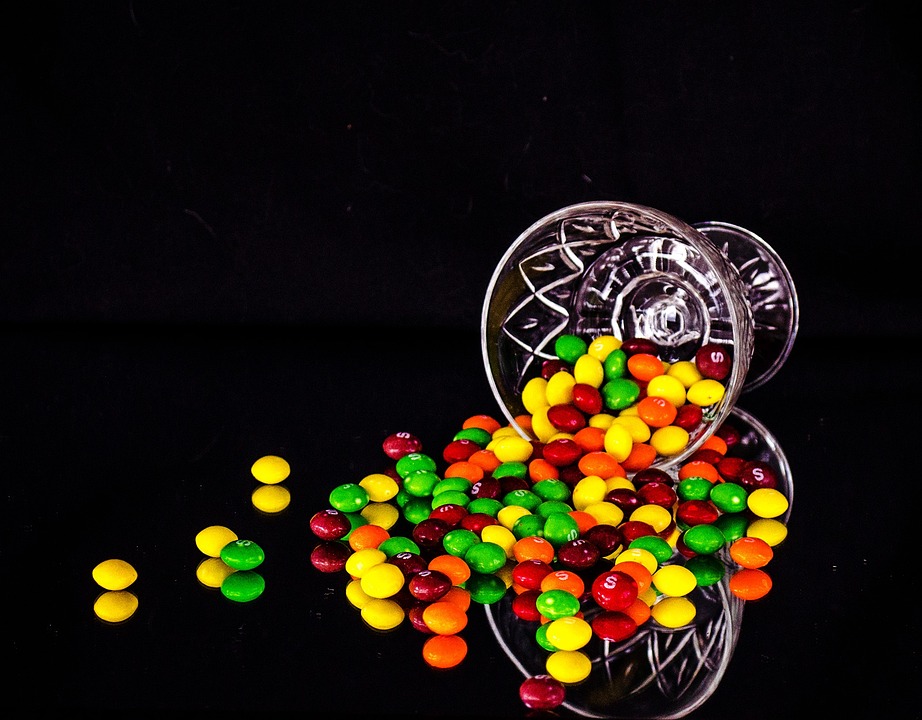
Skittles have been a popular candy choice for decades. These colorful chewy treats are filled with fruity flavors, ranging from lemon to strawberry and even grape. Not only are they delightfully delicious, but the vibrant color combinations make them an eye-catching option when it comes to enjoying a sweet treat.
Whether you love grabbing a handful of Skittles for a snack or putting them in your favorite dessert, these tiny pieces of joy are sure to please your taste buds. With so many different varieties, you can mix and match flavors to create the perfect combination of sweet and tart!
Also Read: Sweet Tarts are a popular candy in the US, but their halal status may not be clear to everyone. If you are looking for an answer to this question, read our are Sweet Tarts halal article where we will explore whether Sweet Tarts are halal or not, and provide you with the information you need to make an informed decision.
Skittles Ingredients
Now that we know what halal means, let’s take a look at the ingredients in Skittles. According to the Skittles website, the ingredients in their candy are sugar, corn syrup, food starch-modified, citric acid, natural and artificial flavors, colors (red 40, yellow 5, blue 1), and sodium citrate.
Sugar: Sugar, a common ingredient in many of our favorite snacks, is something we all love to indulge in – but did you ever wonder if it was halal? The answer is yes! As long as sugar is naturally made, without any haram contaminants, then it can be considered halal. This means that the sugary treats you love don’t have to be off-limits if you follow a halal diet.
Corn Syrup: When it comes to corn syrup and its ingredients, there are two main things to consider: whether it is a natural product or if any synthetic substances are included. Corn syrup is a naturally occurring sweetener made from the starch of corn, so it can be considered halal.
However, while some corn syrups contain only natural ingredients, others have been processed with certain additives and artificial ingredients that may not be deemed halal.
For example, some types of corn syrup contain high fructose corn syrup (HFCS), which is a manufactured sweetener created through the enzymatic conversion of glucose to fructose. As this process involves enzymes produced by bacteria or fungi, HFCS is not considered halal and should be avoided when selecting an appropriate corn syrup.
In general, Skittles uses naturally occuring corn syrup, therefore making this ingredient halal.
Food Starch – Modified: Food starch is a common ingredient in many food products, from sauces and dressings to baked goods. But did you know that it can vary in terms of halal-compliance? Depending on the origin and processing methods used for particular types of food starch, it may or may not be considered halal.
In its most basic form, food starch is made from plant sources such as corn, potatoes, rice, wheat, and tapioca. These are all considered halal by Islamic law and can be used without any concerns of contamination or impurity. Since it is used in this form in Skittles, we consider it halal.
Citric Acid: Citric acid, found in many everyday items such as fruit juices, soft drinks and jams, is a halal ingredient. This is because citric acid is naturally occurring and produced from the fermentation of carbohydrates. It also has no animal products or by-products added during its production process. Therefore, it’s safe to say that all products containing citric acid can be enjoyed by Muslim consumers without any worries.
Natural and Artificial Flavors: These are halal Natural and Artificial Flavors are allowed under Islamic dietary laws as long as the ingredients used to create them are also permissible according to Islamic Law. This means that any artificial or natural flavors that contain pork, alcohol, or other haram ingredients are not halal. In the case of Skittles, the flavours used are halal.
Colors: At times, food colourings can come from some unusual sources. However, Skittles don’t contain any haram ingredients, making them a great snack choice for those looking to maintain a halal diet. Whether you’re looking for a colourful boost to your meal or just want something to satisfy that sweet tooth, Skittles provide a tasty, halal-friendly option.
The bright colours and unique flavours of skittles have made them a popular choice for sweet treats around the world. So go ahead and enjoy the rainbow without worrying about questionable ingredients.
Sodium Citrate: Sodium Citrate, a common ingredient in foods and medicines, can be found virtually everywhere and is halal certified. This means that it complies with the Islamic dietary standards, making it a great choice for those looking to buy products without worry of whether or not they’re breaking religious rules.
Are Skittles Halal?
Skittles are a type of fruit-flavored candy that is produced by the Wm. Wrigley Jr. Company. The ingredients and manufacturing processes used to make Skittles may or may not be in compliance with halal dietary guidelines, depending on the location of the manufacturing plant, the source of the ingredients, and the halal certifying body.
Skittles in the US is not halal certified and the ingredients used in them contains gelatin, which is not halal if it is derived from pork. The artificial colors are also derived from animal by-products and it’s not considered halal.
However, the Skittles produced in the United Kingdom, which are manufactured by Mars Wrigley Confectionery, have been certified halal by the Halal Food Authority (HFA), which is a reputable halal certifying body in the UK. The ingredients used in the UK version are different from that of the US version and it does not contain pork gelatin and is colored using halal compliant colors.
If you are looking for halal skittles, I suggest you check for local halal certification and ingredient labels to confirm if it is halal or not, as there might be variations in different locations and production plants. In addition, you can always consult with local Islamic scholars or imam for guidance on the permissibility of eating Skittles or any other food item.
Also Read: Twizzlers, a popular candy in the United States and other countries, are known for their chewy texture and fruity flavors. However, their ingredients and production process may not be suitable for those who observe halal restrictions. If you’re curious to learn more about whether or not Twizzlers are halal, read our are Twizzlers haram article to discover the answer.
Halal Skittles
FAQ
Do Skittles have gelatin in them?
Are Skittles vegan?
Conclusion
Skittles are made up of vegetarian ingredients and do not contain any ingredients derived from pork or alcohol, which are generally considered haram or forbidden by Islamic law. While Skittles are not officially halal certified, many Muslim scholars consider vegetarian foods to be halal, and Skittles do not contain any haram ingredients. It’s important to note that, while Skittles don’t have any haram ingredient and is made in a facility that doesn’t process pork products, some countries may have specific halal-certified version of Skittles available to purchase. It’s always a good idea to check the ingredients list and country of origin before purchasing any product. However, in general, it’s safe to say that Skittles are halal and can be enjoyed by Muslims without any concerns. It’s always good to double-check with the local religious authority to ensure the product you’re buying is halal, but generally, Skittles are considered halal by most Muslim scholars. Thanks for reading!
